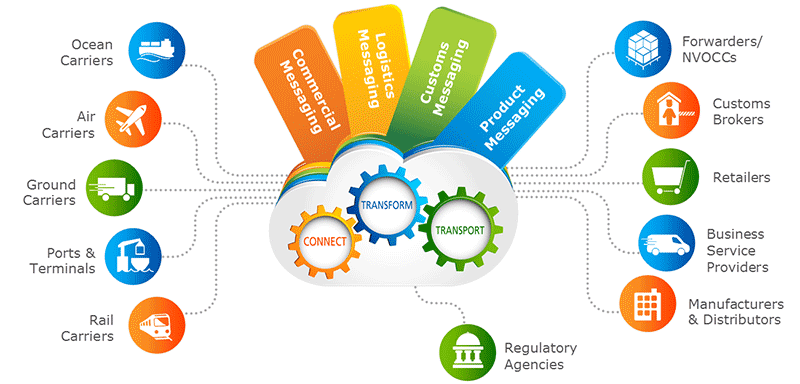深入解析国际贸易术语:DDU(未完税交货)
在国际贸易中,术语的选择对贸易流程、风险分配和成本控制有着深远的影响。今天,我们将聚焦于 DDU(Delivered Duty Unpaid,未完税交货),这一术语在多种运输方式下具有独特的优势和应用场景,对于外贸从业者来说,掌握其规则和应用要点至关重要。
一、DDU 的定义与核心要点
DDU,即 “未完税交货(指定目的地)”,是指卖方将货物运输至进口国指定目的地,并将货物交给买方处置时完成交货义务。在此过程中,卖方需承担货物运至目的地的所有费用和风险,但不包括进口时需支付的关税、税款和其他费用。买方则负责办理进口清关手续,并支付相关税费。
关键要点:
卖方责任:
买方责任:
举例说明:
假设一家中国的汽车配件制造商与德国进口商签订了一份DDU法兰克福的合同。制造商需要将货物通过海运或陆运联运的方式运至法兰克福,并在目的地将货物交给进口商,此时交货完成。而进口商则需要自行办理进口清关手续,并缴纳关税等费用。
二、DDU 在不同贸易场景中的应用
1. 新兴市场拓展
在向新兴市场国家出口时,当地进口清关政策往往复杂多变。采用DDU术语,卖方可以专注于货物运输,而买方凭借其在当地的经验和资源,负责清关手续,从而提高贸易效率。例如,中国企业向印度尼西亚出口电子产品时,采用DDU术语,进口商可以利用其在当地的资源,更高效地完成清关流程。
2. 买方有特殊清关需求
当买方有特殊的清关需求,如享受特定关税优惠政策或需要自行办理某些特殊进口手续时,DDU术语可以满足这些需求。例如,某企业从国外进口科研设备,由于涉及科研项目的特殊政策,买方希望自行办理清关以享受相关优惠,此时采用DDU术语较为合适。
三、DDU 与其他术语的对比
1. DDU vs. DDP
2. DDU vs. CPT
四、使用 DDU 术语的注意事项
1. 提前了解进口清关政策
卖方需提前了解进口国的清关政策和法规,以便在运输安排和货物包装标识等方面做好配合。同时,提醒买方注意可能出现的清关问题,避免因清关延误导致货物滞留。
2. 运输合同的细节把控
卖方在订立运输合同时,需明确运输路线、运输时间、货物装卸责任等细节。选择可靠的运输合作伙伴,确保货物按时、安全地运抵目的地。同时,考虑运输过程中可能出现的风险,合理安排保险。
3. 费用沟通与核算
卖方需与买方充分沟通,让买方清楚了解除货款外还需承担的进口税费等费用。卖方自身也要准确核算运输成本,避免因成本估算失误影响利润。
总结
DDU术语为国际贸易提供了一种独特的交易模式,尤其在涉及多种运输方式的复杂贸易场景中具有重要应用价值。外贸从业者在使用DDU术语时,需准确把握其规则和要点,谨慎处理各个环节,以实现贸易的顺利进行和双方的互利共赢。
在下一期内容中,我们将继续深入解读更多国际贸易术语,敬请期待!
In-Depth Analysis of the International Trade Term: DDU (Delivered Duty Unpaid)
In international trade, the choice of trade terms has a profound impact on the trade process, risk allocation, and cost control. Today, we focus on DDU (Delivered Duty Unpaid), a term that offers unique advantages and application scenarios under various modes of transport. For exporters, mastering its rules and key points is crucial.
I. Definition and Key Points of DDU
DDU, which stands for "Delivered Duty Unpaid (named place of destination)", means that the seller is responsible for transporting the goods to the designated destination in the importing country and completes the delivery obligation when the goods are handed over to the buyer. During this process, the seller bears all the costs and risks associated with transporting the goods to the destination, but not the customs duties, taxes, and other fees required at import. The buyer is responsible for handling import customs clearance and paying these fees.
Key Points:
Seller's Responsibilities:
The seller is responsible for transporting the goods to the designated location in the importing country and bears all costs and risks associated with the transportation.
The seller must ensure that the goods arrive at the destination on time and safely, but is not responsible for customs clearance or payment of duties.
Buyer's Responsibilities:
The buyer is responsible for handling import customs clearance and paying duties, taxes, and other import-related fees.
The buyer must ensure they have the local resources and capabilities to handle complex customs procedures.
Example:
Suppose a Chinese automotive parts manufacturer signs a DDU Frankfurt contract with a German importer. The manufacturer is responsible for transporting the parts to Frankfurt via multimodal transport (e.g., sea and road) and handing over the goods to the importer at the destination, thereby completing the delivery. The importer, however, must handle the import customs clearance and pay the duties and fees.
II. Applications of DDU in Different Trade Scenarios
1. Market Expansion in Emerging Markets
When exporting to emerging market countries with complex and variable import customs policies, using the DDU term allows the seller to focus on transportation, while the buyer, with their local experience and resources, handles customs clearance. This can improve trade efficiency. For example, when a Chinese company exports electronic products to Indonesia using the DDU term, the importer can leverage their local resources to complete customs clearance more efficiently.
2. Special Customs Clearance Requirements for the Buyer
When the buyer has special customs clearance requirements, such as enjoying specific tariff preferences or needing to handle certain special import procedures, the DDU term can meet these needs. For example, if a company imports scientific research equipment and wants to handle customs clearance independently to enjoy relevant benefits due to special project policies, using the DDU term is appropriate.
III. Comparison of DDU with Other Trade Terms
1. DDU vs. DDP
DDP (Delivered Duty Paid): The seller is responsible for all risks and costs associated with transporting the goods to the designated destination in the importing country, including handling import customs clearance and paying duties.
DDU: The seller does not bear the responsibility for customs clearance and duty payments. The buyer handles these tasks. DDU reduces the burden on the seller regarding import customs and duties.
2. DDU vs. CPT
CPT (Carriage Paid To): The seller is responsible for the transportation costs to the designated destination, and the risk transfers to the buyer when the goods are handed over to the first carrier. It does not involve import customs responsibilities.
DDU: The seller must transport the goods to the designated destination in the importing country, and the risk transfers at the point of delivery. The buyer is responsible for customs clearance. DDU emphasizes delivery and customs responsibility allocation at the destination in the importing country.
IV. Key Considerations When Using the DDU Term
1. Understanding Import Customs Policies in Advance
The seller should familiarize themselves with the customs policies and regulations of the importing country to coordinate transportation arrangements and packaging labeling. They should also alert the buyer to potential customs issues to avoid delays and goods being stranded.
2. Attention to Details in Transportation Contracts
When concluding transportation contracts, the seller must specify details such as transportation routes, schedules, and loading/unloading responsibilities. Choosing reliable transportation partners to ensure timely and safe delivery is crucial. Additionally, considering potential risks during transportation and arranging appropriate insurance is important.
3. Communication and Calculation of Costs
The seller must communicate clearly with the buyer about the import duties and fees they will need to pay in addition to the purchase price. The seller should also accurately calculate transportation costs to avoid profit losses due to cost estimation errors.
Summary
The DDU term provides a unique trading model in international trade, especially in complex trade scenarios involving multiple modes of transport. Exporters using the DDU term must accurately grasp its rules and key points and handle each环节 with care to ensure smooth trade and mutual benefits.
In the next installment, we will continue to delve into more international trade terms. Stay tuned!







